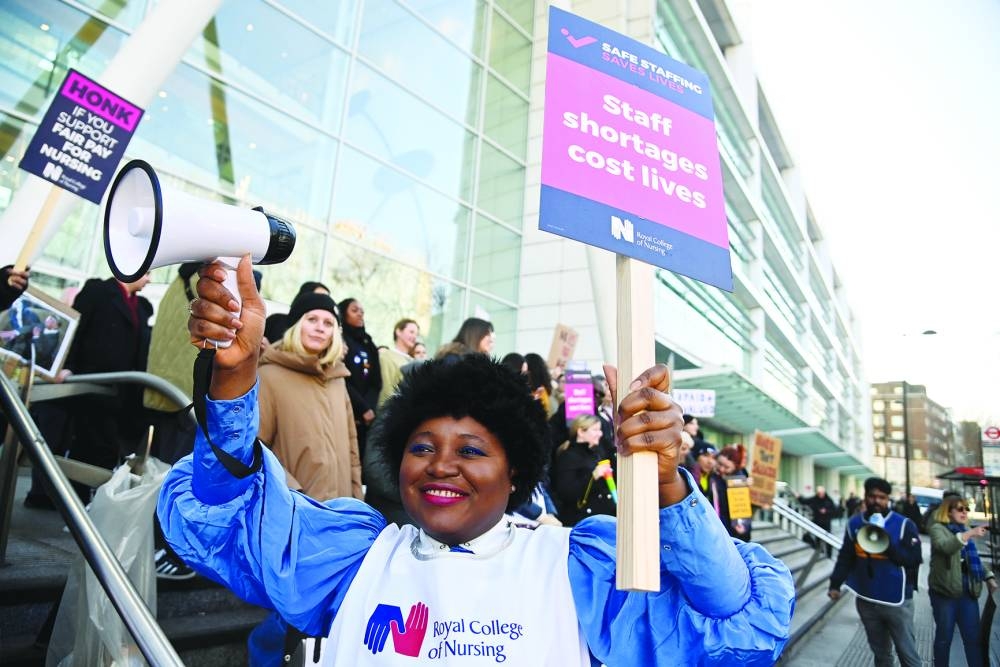Tens of thousands of nurses and ambulance service staff walked off the job yesterday in a pay dispute, putting further strain on Britain’s state-run National Health Service with their largest ever strike.
Nurses and ambulance workers have been striking separately since late last year but yesterday’s walkout involving both, largely in England, is the biggest in the 75-year history of the NHS.
Nurses will also walk out today, ambulance staff on Friday, and physiotherapists Thursday, making the week probably the most disruptive in NHS history, its medical director Stephen Powis said.
Health workers are demanding a pay rise that reflects the worst inflation in Britain in four decades.
The government says that would be unaffordable and only cause more price rises, making interest rates and mortgage payments rise further.
“The government needs to listen and discuss pay rather than just saying the NHS doesn’t have money,” said nurse Ethna Vaughan, who was part of a demonstration outside St Thomas’ Hospital in central London.
“We cannot survive with what we’re being paid.”
Around 500,000 workers, many from the public sector, have been staging strikes since last summer, adding to pressure on Prime Minister Rishi Sunak to resolve the disputes and limit disruption to public services such as railways and schools.
The Royal College of Nursing (RCN) trade union wrote to Sunak over the weekend asking him to bring the nursing strike “to a swift close” by making “meaningful” pay offers.
A spokesperson for Sunak said yesterday there were no plans for the prime minister to get involved in the talks, adding: “We want to keep discussing how we can find a path forward with the unions.”
“We’ve got one of the busiest winters we have ever had with record levels of funding going into the NHS to try and manage services,” Maria Caulfield, the minister for mental health and women’s health strategy, told Sky News yesterday.
“So every % of a pay increase takes money away.”
The NHS, a source of pride for most Britons, is under extreme pressure with millions of patients on waiting lists for operations and thousands each month failing to receive prompt emergency care.
The RCN says a decade of poor pay has contributed to tens of thousands of nurses leaving the profession — 25,000 over just the last year — with the severe staffing shortages impacting patient care.
International
Medics walk out in UK’s biggest health service strikes
Tens of thousands of nurses and ambulance service staff walked off the job yesterday in a pay dispute, putting further strain on Britain’s state-run National Health Service with their largest ever strike.

A person holds a megaphone and a sign as nurses protest during a strike by NHS medical workers, amid a dispute with the government over pay, outside University College London Hospital in London, Britain, yesterday.
